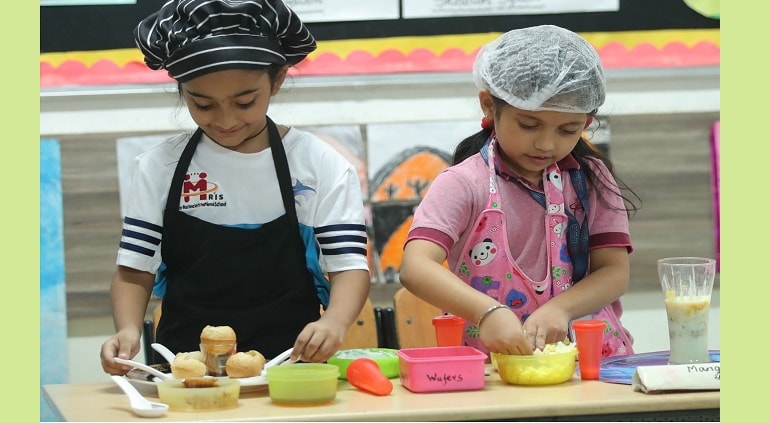Life Skills have been identified as essential resources for developing psychosocial, emotional, cognitive and behavioral skills to negotiate everyday challenges and productive involvement in the community. Thus, they are termed as lifelong skills. People are naturally eager to learn, even if they are not willing to study. We are most aware of learning when we are informal education, and teaching life skills is necessary to address the skills gap in and outside of the classroom.
Let’s keep life simple with Life Skills
Children are like sponges. They learn from everything they encounter. It’s absolutely important for children to learn more than just academics. The ability to learn is perhaps the most important life skill anyone possesses.
It’s a lifelong approach and attitude and will serve you if you cultivate it. Those who want to learn are open to new experiences, actively seeking out ways to learn and develop. Everything is an opportunity for experimentation and therefore, is a sort of learning.
Life Skills helps deal with day-to-day life challenges
There is a growing demand to educate adolescents with life skills to help them deal with their day-to-day life challenges and transition into adulthood with informed healthy choices. Offering our readers a guide to teach children life skills:
Make them do their own work: Let’s face it. When our kids grow up, they are likely to leave home to pursue their education or career. And if they aren’t taught responsibility and daily-living skills today, it would be a problem for them in the future.
Top 9 life skills you should teach your children:-
- Teach them to manage their time
- Teaching those decision-making skills
- Managing money and basic budgeting
- Cleaning and other household chores
- How to use maps
- Basics of traveling
- Looking at situations from others’ perspectives:
- First-aid and importance of health
- Involve them in simple cooking
- Teach them to manage their time: Do this by giving them an alarm clock that they can use to wake up on time for school. Get them a planner for tracking their school and extra-curricular work.
- Teaching those decision-making skills: Teach children in simple ways how to make wise decisions. Start by asking them to choose between two activities or games; two different types of clothes; two different food items, etc.
- Managing money and basic budgeting: Give children a certain amount of pocket money every week or every two weeks that they have to use for their expenses. Teach them the importance and relevance of budgeting, planning, saving and the real value of money.
- Cleaning and other household chores: Start by just asking them to keep their room clean, make their bed, and make sure everything they own is in its right place. Parents can then ask their children to clean the dishes that they use, after eating.
- How to use maps: Going somewhere? Start off by teaching kids the routes around your house and test this by asking them to direct you home from school. You can then ensure that your child learns how to read a map, and also teach them how to use a GPS and follow its instructions.
- Basics of travelling: From learning to ride a cycle to learning how to use public transport, make sure your child knows how to do these things along with routes. Teach them how to buy a metro or bus tickets; teach them the basics of which metro train or bus goes to your house from school.
- Looking at situations from others’ perspectives: When a child comes to a parent about a problem that they witnessed, encourage them to look at the situation that took place from the perspective of others.
- First-aid and importance of health: Empower them so that they are able to take care in case of an emergency by showing them a first aid kit and its contents. Instead of forcing children to eat vegetables, talk to them about health risks in eating junk food.
- Involve them in simple cooking: Initially, teach a child how to make their own sandwiches; have them tear up greens, squeeze a lemon, and put chopped vegetables to make a salad.
Written By:- Ms Neeti Arora, Student Counselor and Soft Skills trainer at MRIS Charmwood, and a CID-UNESCO certified Therapeutic Movement Facilitator.






